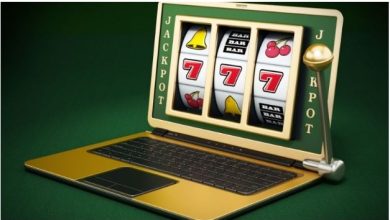Pennsylvania Casinos Ask State Supreme Court to Rule Slot Machine Taxes Unconstitutional

Several land-based casino operators in Pennsylvania believe that the 54% tax on gross slot machine revenue is unconstitutional. They believe there is no constitutional reason for the government to tax slot machines and not to tax skill games.
Casino operators file a petition
Parx Casino, the largest casino gaming complex in Pennsylvania, plus 11 other brick-and-mortar casinos have filed a petition for review. They are seeking a ruling from the Supreme Court that slot machine taxes are unconstitutional.
Skill games have existed in a gray area for some time. According to the lower state courts, the Pennsylvania Gaming Control Board (PGCB) doesn’t have the authority to regulate skill games. Court decisions have also been made that prevent the seizure of skill game machines by law enforcement or the collection of taxes from these games. The skill games may operate in almost the same way as slot machines but are untaxed.
Skill games versus slot games
Proponents of skill games argue that they require skill whereas a slot machine is a game of chance rather than skill. The argument that skill games require a certain level of aptitude means the Pennsylvania Gambling Act doesn’t apply to them.
In June, the Pennsylvania Supreme Court announced it would review an appeal from the state Attorney General. This appeal was to reconsider the opinion of a lower court that skill games are not slot machines. Both this appeal and the petition filed by the casino operators reflect the ongoing debate in the state over games of skill.
Skill game interests ask for taxation
The complainants argue that there is no basis for licensed entities to pay about half of the slot machine revenue to the state while unlicensed entities pay no tax. Last year, Pennsylvania casinos paid the state about $1 billion from their retail slots.
The controversial skill games are commonly located in restaurants, bars, convenience stores, and other retail businesses. These businesses rely on the revenue from the machines, so they have a vested interest in them being legalized rather than shut down. Those in favor of skill games also argue that they don’t take revenue away from casinos although casinos say this is not the case. Governor Josh Shapiro stated in his latest budget proposal that he is in favor of legalizing the skill games and imposing a 42% tax on them.
When looking at slot machines history, the term slot machines originally applied to all automatic vending machines. However, in the 20th century, the term came to apply strictly to gambling machines. There appears to still be confusion about what constitutes a game of skill or chance in Pennsylvania, and the Supreme Court has the authority to bring some clarity.
Supreme Court decision
The Supreme Court must decide, and with complainants and opponents having very different views, it could be a tricky one. If the Supreme Court agrees with the plaintiff casino operators that casino slots shouldn’t be taxed, the state will have to do without a significant stream of tax revenue.


